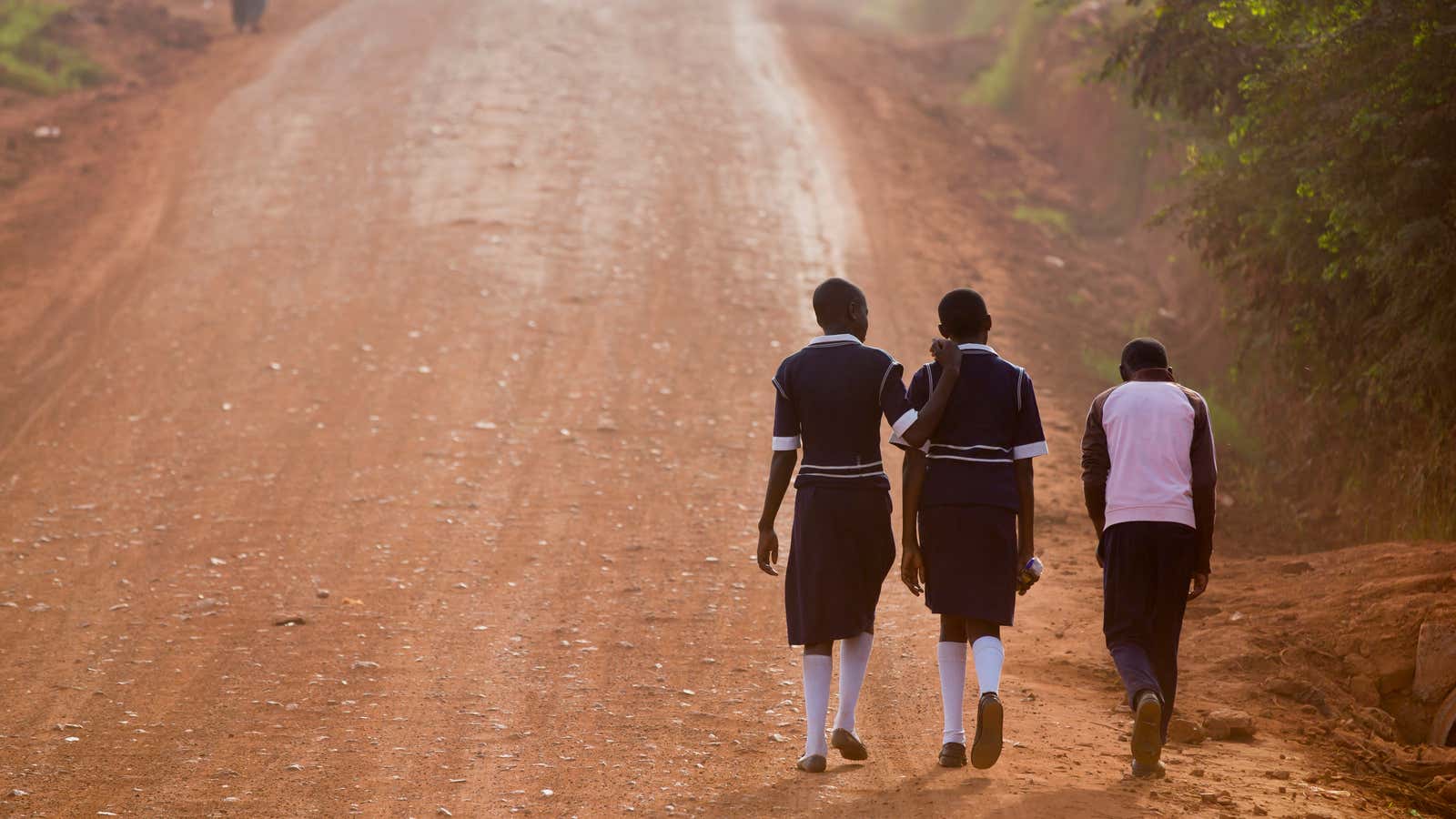Parents and students in Uganda are protesting against a High Court decision to close a chain of low-cost, private schools backed by investors including Bill Gates and Mark Zuckerberg. The court ruled that the Bridge International Academies were not properly licensed, hired unqualified teachers and used unsanitary spaces for teaching.
The ruling affirmed the ministry of education’s decision in July to close the schools, which at the time said that inspections had showed poor hygiene conditions that “put the life and safety of the school children in danger.” Bridge International runs a total of 63 nursery and primary schools in Uganda, which are attended by more than 12,000 students.
The court’s decision deals a major blow to Bridge, which calls itself the world’s largest education innovation company. The academy uses smartphones and tablets to deliver standardized lessons and monitor the performance of the more than 100,000 students who attend its over 400 schools in Africa and Asia. The decision also creates an obstacle for the Bridge Academies, whose penultimate goal is to spread a model of cheap, internet-based education to 10 million children.
School officials now say that government officers never visited them, and that inspection reports were never shared with them. The ruling, they said, threatens to undo their work to broaden education opportunities in Uganda, and jeopardizes the work of their 800 employees.
“We plan to appeal, on behalf of the more than 20,000 Ugandans who have decided to send their children to our schools,” Godwin Matsiko, a liaison officer with the Bridge Academies said. “They do this because they want an affordable quality education. They want the best for their children, and this court ruling throws that into doubt.”
One parent with six children at Bridge International, told AFP that he disagreed with the court’s decision saying the facilities were fine. He suggested that Bridge schools had become competitive with government-run schools and might be seen as a threat to the establishment.
The Bridge International model faced controversy in Liberia, where officials wanted to improve the failing education system in the country by allowing the program to take over the day-to-day running of 120 public primary schools in the country.
